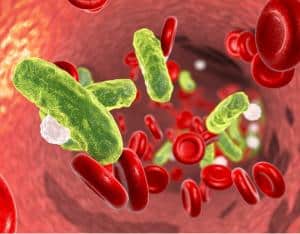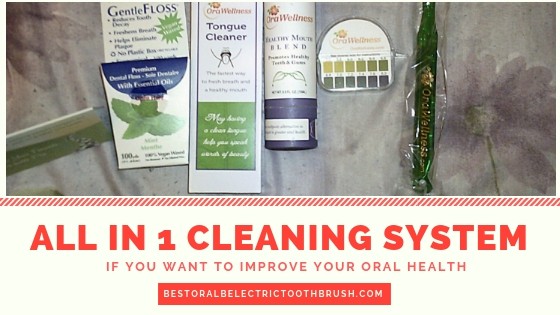Okay we might be exaggerating a bit when we say you could die from Dental deep cleaning but don’t be fooled. It can be a potentially dangerous situation.
One of the major Dental Deep Cleaning Side Effects that dentist’s fear is the release of Bacteremia into the blood stream after a deep cleaning session which is also called root scaling and planing.
Bacteremia simply means there are bacteria in the blood stream and depending on the type of bacteria present, you could be at a higher risk of infection. Some other side effects to note are:
- Loose Teeth
- Less Blood Flow to your gums (if you smoke or are diabetic)
- Could cause Periodontal disease
But which of these side effects is more common and does it make sense to undergo a root scaling procedure in the first place?
Good question and if you carry on reading you will find all the answers you came for and be in a better position to make a call on whether it’s something you need to undergo
Dental Deep Cleaning Side Effects In More Detail
Okay so we touched up on the things that could affect you after a deep cleaning procedure but let’s go into more detail and see if we should really worry about them:
Bacteremia – Worry A lot!

Bacteremia occurs when bacteria enter the blood stream without any warning. This is definitely the case when it comes to deep cleaning because no one really knows whether the bacteria have infiltrated into the main blood stream.
But the main concern with this is the possibility of infection.
It’s actually been studied and there are signs showing that bacteremia with oral bacteria may also play role in pathogenesis of atherosclerosis.
If your gum disease is quite bad and during the procedure you bleed a lot, be wary that there is the potential that bacteria that have been dislodged will sneak their way into your blood stream.
To be on the safe side, we recommend you get a blood check carried out a few days after your root scaling procedure.
Loose Teeth
If the deep cleaning procedure is not carried out properly, you might notice your teeth become loose and there is a risk of them falling out.
Sometimes though this isn’t a big shock because the plaque and tartar build up on and under the gum line area make the teeth stay in place, which is a good thing in one sense but when the dangerous tartar is removed, it will leave spaces in and around the teeth.
The spaces left by the tartar may not heal up quickly enough and you will get re occurring build up. In some cases the damage is so bad the teeth just fall out due to the lack of structural stability.
Less Blood Flow To The Oral Cavity
If you smoke you are 3 times more likely to get gum disease compared to non-smokers. The reason for this is nicotine in the cigerrate reduces saliva flow and can lead to dry mouth symptoms.
The saliva of smokers is thicker than a non-smoker and this makes it hard for the saliva to coat the teeth properly which leads to inadequate protection.
Diabetics that cannot control their condition properly have less blood flow to their gums and teeth.
This is because the blood vessels become altered and the efficiency of transporting nutrients and removal of waste from the body weakens.
Naturally, the blood flow will also reduce and cause the weakening of gums and bone structure.
This makes them more susceptible to infection!
Could Cause Periodontal Disease
Plaque and tartar that build up under the gum line can accumulate and cause gum pockets to enlarge.
What this means is your teeth’s bone structure will start to destabilise once the pocket sizes get below 3mm.
Deep root scaling will remove any tartar and plaque from under the gum line but the damage to the tooth structure has already taken place.
This means you will have to undergo other treatments/surgery to stop any further damage. But remember: Periodontal disease is not reversible!
With All These Side Effects, Should I Get A Deep Cleaning Procedure Done?
The short answer is YES
The side effects and risks associated with dental deep cleaning are minimal in comparison to the benefits that you will get out of it. It is absolutely critical that you remove plaque and tartar from the gum lines and teeth to stop it from progressing into periodontal disease.
If you go speak with a professional trust worthy dentist and tell them about the concerns you have, they will make sure you understand everything clearly before you decide to go ahead with the treatment.
What Does A Deep Clean Involve?
It might seem quite scary at first but don’t worry, it’s a non-invasive and non-surgical procedure which involves a hygienist using hand instruments alongside ultrasonic equipment to scrape the plaque above and below the gum line.
How severe your plaque build up will determine how the cleaning takes place.
If you only have a mild case of gum disease, the procedure will be carried out in one session.
If the condition is worse, your mouth will be split into different quadrants and the hygienist will work on each section one at a time.
You will most likely need to book in 2-3 meetings if you have a severe case of plaque build up.
After the procedure has been carried out, you will be given some prescribed medications such as antimicrobial mouth rinse, antiseptic chips or some other pain killers.
After Care Is Very Important!
It’s all good and well getting a deep cleaning carried out but if you go back to your same old pathetic oral hygiene routine you will be coming back to the dentist for the rest of your life.
If your someone who falls into this category, please make a change in your oral habits. If you do you will see that you are visiting the dentist less and less.
There are some basic things you need to be doing every day to make sure the plaque is not building up uncontrollably. Here is what we recommend:
- First thing in the morning after you get up, brush your teeth gently using only water. This is to remove any gunk and impurities built up overnight.
- 40-60 minutes after having breakfast, Floss your teeth gently making sure you get between each tooth. This will remove small particles and food.
- Brush your teeth for 2 minutes, ideally with an Electric Toothbrush.
- Use a tongue scraper and scrape the tongue to remove the yellow/white gunk (this is the main cause of bad breath)
- This is optional but you can use a mouth wash to help freshen up your mouth.
Additional things to consider:
After each big meal you have, always rinse your mouth with water afterwards and floss your teeth to remove particles stuck in between them.
This will minimise the bacterial activity and less plaque build up will occur.
This is the foundation of any good oral routine and if you incorporate this, you will start seeing positive changes.
Is There Anything I Can Use To 10x My Teeth & Gum Health?

We have already talked about the basic routine you need to be following. If you just do that you will see good improvements but that will happen over time.
If you want to get Fast Results and we’re talking 2-4 weeks or in some cases under 1 week, you need to consider The Orawellness Starter Kit. This is a complete system that helps you fix the following issues:
- Bleeding Gums
- Receding Gums
- Plaque Build up
How will it do that?
Before I answer that, I want to tell you that I brought the Orawellness Starter Kit myself, so it’s not something completely random I’m talking about. I have experience with it.
The most important component of the Orawellness starter kit is the Healthy Mouth blend and the Bass Toothbrush. If you combine these two together, MAGIC Will Start To Take Place!
I used this same method and within 2 weeks my gums were not bleeding anymore and they become a lot stronger.
Want to learn how I did it and the methods I used?
Then please read this post on: Orawellness Starter Kit Picture Review: Will It Work?. It will show the exact method I used to improve my gum issues within weeks.
Conclusion
There are some Dental Deep Cleaning Side Effects you need to be wary of but please don’t worry too much because the cleaning procedure itself has more advantages than the potential side effects you could face.
Bacteremia is the one with the most potential to do some harm but if you have a good dentist, they will go through some steps you can take afterwards to mitigate this problem.
But the most important point we want you to take away from this post is that, you need to have a solid oral routine so that the plaque and tartar don’t build up to ridiculous levels where you have to constantly be coming back to the dentist for the same treatment over and over again.
This will just increase your chances of catching one of the side effects.
Try the Oral hygiene routine we have provided you with above and see what difference it makes.
We are confident that if you implement it as we have instructed you will see big improvements over time and will not need deep cleaning ever again.
Thanks for taking the time to read through this article, we hope you enjoyed it and please if you have any question please leave a comment below 🙂

